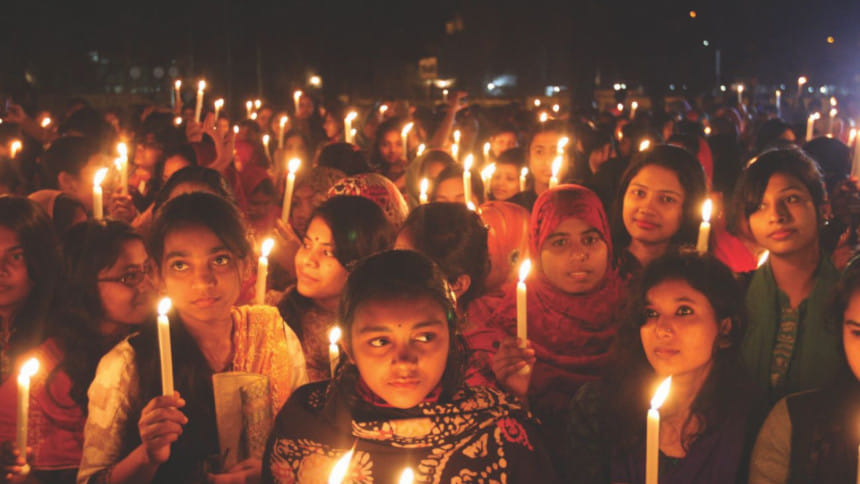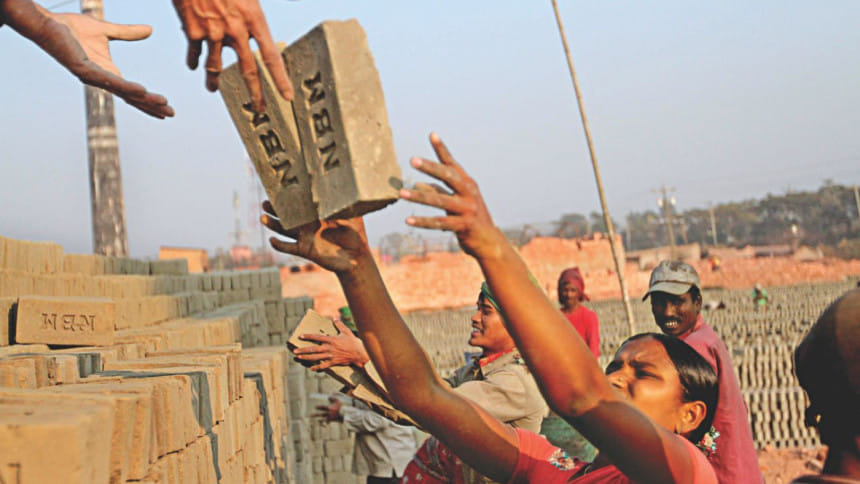Work equal, wage not

On a vast yard, Khadeja Begum collects in a basket oil sludge that her male co-workers scoop out from a concrete floor.
She and 10 male labourers have been hired to remove the pitch-dark layer of grease from the concrete yard of the Inland Container Depot at the capital's Kamalapur Railway Station.
Though they all work from the morning to dusk for the same number of hours, Khadeja gets Tk 300 a day while the males are paid Tk 450 each.
"Men deserve a certain level of honour … So we have to pay them at least Tk 400," said Md Shahjahan, who hired the labourers.
He further said a woman can carry less heavy and fewer baskets than a man.
Khadeja, the lone breadwinner of her four-member family, said, "I know I am not getting fair wage. But what choice do I have?"
"I am thankful that I have been able to pay for the education of my two preteen daughters by working as a day labourer," said the 35-year-old woman, who has been working at construction sites for more than five years.

According to Bangladesh Labour Force Survey 2010, there were 2.27 lakh women construction workers in the country.
"We believe the number has multiplied with the increase in construction projects in recent years. But the discrimination remains," said Sultan Uddin Ahmed, assistant executive director of Bangladesh Institute of Labour Studies (BILS).
Citing a 2011 BILS study, he said 72 percent women construction workers are paid less than the male ones.
Against such a backdrop, Bangladesh, like all other countries across the globe, observes International Women's Day today with the theme "Empowering Women, Empowering Humanity: Picture it!"
Sultan said the claim that women cannot work as much as men is unacceptable. But it is being used as an excuse for paying women labourers less.
However, women in formal sectors such as corporate establishments and government offices don't face blatant wage discrimination as in informal sectors, he observed.
"But it should be noted that less than one-fourth of government employees are women," said Sultan.
Quoting Bangladesh Factory Rules 1979, he said women must be paid the same wage as their male co-workers.
Eminent agriculture development activist Shykh Seraj said women labourers are discriminated against also in the farm sector that largely depends on their labour.
"From the hill districts to the northern region, men's daily wage is at least one and a half times that of women," said Shykh Seraj.
According to the Labour Force Survey, of the 2.57 crore agricultural labourers, 64 percent are women.
Founding President of Karmojibi Nari Shirin Akhter said there are cases where women organised themselves and fought for fair wage.
The only way for women to get fair wage is to protest discrimination, she said.

 For all latest news, follow The Daily Star's Google News channel.
For all latest news, follow The Daily Star's Google News channel. 



Comments